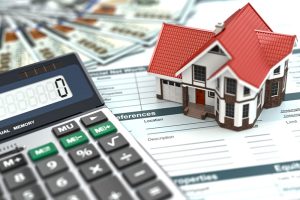
Buying or selling a property can be overwhelming, and property valuation is an essential step in this process. Whether you’re the buyer or seller, understanding the valuation process and its influencing factors is crucial for making informed decisions. In this article, we’ll discuss the valuation process and how property owners can influence a valuer’s estimate of value.
Property investing, acquiring a loan from a bank is often a crucial step towards realizing one’s investment dreams. However, the process of loan approval is no walk in the park.
Banks go through a number of measures to ensure that their investment is secure. One such measure is relying on the opinion of registered property valuers before approving loans.
These valuers are experts in the field and assess the property in question thoroughly to provide a fair estimate of its worth. By obtaining their opinion, banks are able to ascertain whether or not the investment is worth the risk.
As a result, property investors must ensure that they have accurate and reliable valuations of their assets to achieve their investment goals.
Short Summary
- Property valuers are highly trained and expertly qualified professionals who provide an assessment of what a property should achieve on the market based on evidence. – Banks rely on the opinion of registered property valuers before approving loans.
- Valuers assess properties in three steps: inspection, sales evidence, and report. – Valuers look at the land, dwelling, and neighborhood when determining property value. – There are things property owners can do to influence a valuer’s estimate of value, including presentation and completing uncompleted tasks. – Understanding the valuation process can help property owners adopt a plan for the best possible outcome.
What does exactly a Property Valuer actually do?
 When it comes to property investing, it is essential that investors work with professional bank valuers who have extensive experience and expertise in the field. They understand the complexity of assessing a property’s value and can provide an accurate assessment based on their findings. Professional bank valuers can also serve as invaluable advisors who provide sound advice to investors, allowing them to make informed decisions.
When it comes to property investing, it is essential that investors work with professional bank valuers who have extensive experience and expertise in the field. They understand the complexity of assessing a property’s value and can provide an accurate assessment based on their findings. Professional bank valuers can also serve as invaluable advisors who provide sound advice to investors, allowing them to make informed decisions.
All in all, a professional bank valuer is an essential asset for any property investor. Their expertise and knowledge of the market are invaluable when it comes to determining the true value of a potential investment property and making informed decisions about investing in real estate. Investing in a property with the help of an experienced bank valuer can also reduce potential risks and ensure successful investments.
Property Valuers are typically independent. They would normally work for a range of organisations, including property developers, governments, property strategists, and financial institutions.
Professionalism – A career in Property valuation
Bank valuers have a responsibility to ensure that all their assessments are fair and accurate. This requires them to stay informed on current market trends and consult with other professionals when necessary. Their professionalism also extends to their conduct with clients. They must always remain courteous and provide an unbiased opinion when assessing a property.
It is clear that bank valuers play an important role in any property investment. Their expertise enables them to assess a property’s value accurately and provide sound advice to their clients. By understanding the local area sales records, tax assessments, and general market trends, bank valuers are able to provide a valuable service that helps investors make informed decisions.
Factors That Influence Property Valuation
 A bank valuer can provide valuable guidance in understanding the factors that influence property values. These include location, land use and zoning regulations, infrastructure developments, recent sales data, overall condition of the property, and depreciation value.
A bank valuer can provide valuable guidance in understanding the factors that influence property values. These include location, land use and zoning regulations, infrastructure developments, recent sales data, overall condition of the property, and depreciation value.
Location is one of the most important factors when it comes to valuation. Properties in desirable areas tend to have higher values due to the amenities and infrastructure in the area. Additionally, zoning regulations determine how a given land can be used and developed. Understanding the zoning of a property helps to inform an overall assessment of its value.
Infrastructure developments can also have an impact on a property’s value. Good roads, utilities such as electricity or gas lines, water supply, sewerage systems, and other amenities increase the value of a property. The same can be said for recent sales data, as it provides an indication of how much a property is typically selling for in the area.
Finally, the overall condition and depreciation value of a property should also be taken into consideration. Anything that affects the structural integrity or safety of a building can reduce its value, and the depreciation of a property should be discussed to ensure its value is properly reflected.
A bank valuer can provide invaluable advice in helping to understand all the factors that influence property values. With their expertise and experience, they can help guide any potential investor on how best to assess a property’s worth. This knowledge can then be used to help make an informed decision
The Valuation Process
 Valuation is a crucial process that requires precise attention to detail and extensive knowledge of the market. Valuers carry out this process in three steps, namely inspection, sales evidence, and report. During the inspection, valuers evaluate the condition of the property they are assessing and any unique features that could impact its value. In the sales evidence stage, valuers analyze data from the real estate market to determine how much similar properties have sold for in the area.
Valuation is a crucial process that requires precise attention to detail and extensive knowledge of the market. Valuers carry out this process in three steps, namely inspection, sales evidence, and report. During the inspection, valuers evaluate the condition of the property they are assessing and any unique features that could impact its value. In the sales evidence stage, valuers analyze data from the real estate market to determine how much similar properties have sold for in the area.
Finally, in the report stage, valuers provide a detailed and accurate report on their valuation, taking into account all the factors they have considered. The ultimate goal of a valuation is to determine the fair market value of a property, which is invaluable information whether you are looking to purchase or sell a property.
The valuation process consists of three critical steps:
- Inspection
- Research
- Sales evidence, and a
- report.
Inspection
During the inspection, the valuer assesses the property’s features, such as the land, dwelling, and the neighbourhood. The valuer then examines the sales evidence to determine how much properties with similar features have sold for recently.
Finally, the valuer prepares a report that provides an assessment of what the property is worth based on the gathered evidence.
Valuation Research
When it comes to determining the value of a property, valuers rely on thorough market research and an in-depth analysis of various factors. These factors can include the land, dwelling, and neighborhood of the property.
Valuers take into account the current condition of the property, any recent renovations or upgrades, as well as any potential for future developments in the surrounding area. Additionally, they consider the current market conditions and trends to accurately assess the property’s overall value.
They would typically access reports from Corelogic or SQM. A comprehensive understanding of all these variables allows valuers to provide an accurate and fair property valuation to their clients
Property Location
The neighbourhood is also a critical factor in the valuation process. Valuers consider the amenities available in the local area, such as schools, parks, and public transport. They also consider the market demand for properties in the area and the local economy. Properties in high-demand areas tend to be valued higher than those in low-demand locations.
As they say location, location, location. The property investment valuer will also look at position, aspect, size, dimension, and topography.
Property Age
The age of a property is also taken into consideration when valuing it. Properties that are new or recently renovated tend to be valued higher than those that have been standing for many years. Valuers take into account the condition of the property and any renovations that were made over time to assess its value accurately.
Property Condition
There are various factors that can influence a property valuer’s estimate of value. The first is the property’s presentation. Valuers take into account the first impression of the property, and cleaner, well-maintained, and well-presented houses generally increase the property’s value. Completing any outstanding tasks, such as fixing broken windows or painting walls, can also increase the property’s value.
The better the condition the higher the value. Age, size, construction, layout, accommodation, condition, utility all play a part in the what the value of your home.
Strategies for Working with Bank Valuers
 When working with a bank valuer, it is important to take the time to understand their process and ensure that you get an accurate assessment. Ensure they have access to all the necessary documents and information required for an accurate assessment. It is also helpful to be aware of local area sales records and familiarize yourself with market trends so you can make an informed decision. Pay attention to their advice and ask questions in order to gain a better understanding of the valuation process.
When working with a bank valuer, it is important to take the time to understand their process and ensure that you get an accurate assessment. Ensure they have access to all the necessary documents and information required for an accurate assessment. It is also helpful to be aware of local area sales records and familiarize yourself with market trends so you can make an informed decision. Pay attention to their advice and ask questions in order to gain a better understanding of the valuation process.
Finally, it is important to remember that bank valuations are there to provide an objective opinion on a property’s value. They are not there to influence your decision one way or another but rather provide the best advice they can so you can make an informed decision.
By working with a bank valuer, you can be sure that your property investment will be based on accurate information and sound advice. This will ensure that you make the right decision for your financial future
Local Area Sales Records
Another important factor that bank valuers take into account when assessing a property is the local area sales records. They research similar properties that have been sold recently in the vicinity to understand the comparative value of a specific property.
This includes studying factors such as size, condition, and location so they can adjust their valuation accordingly. By having an understanding of what other properties are selling for in the area, valuers can provide an accurate assessment of a property’s value.
Tax Assessments
Bank valuers also use tax assessments to help them determine a property’s value. This includes researching the taxes that have been levied against similar properties in the vicinity so they can accurately adjust their valuation accordingly. By taking this into account, they are able to provide an accurate estimate of what the property may be worth in the near future.
Infrastructure Changes and Property Value
One of the most important aspects for any property investor to consider is how changes in infrastructure can affect a property’s value. Infrastructure includes roads, sewer lines, parks, public transportation, etc. All of these components play a role in the overall property valuation.
For example, if there are new road developments near a property then it may improve the value of that property. On the other hand, if there are plans to build a new factory near a residential area, this could negatively impact property values.
Infrastructure changes can also affect potential renters or buyers in terms of convenience and accessibility. A well-developed infrastructure will provide easy access to public transportation and recreational facilities, which is attractive to potential tenants and buyers.
Therefore, it is important to keep track of infrastructure changes near a property and consider how they might affect its value before investing. Bank valuers can provide advice on the potential impacts of such changes in order to help you make an informed decision. This will ensure that your investment will yield the best return possible.
How do they determine the property value?
There are three main ways (or combination) the Bank Valuer will estimate the market value.
- Comparison method – this is where they look at properties of similar conditions, aspects, etc. in the area and compare them. This is one of the most common methods used by Bank Valuers.
- Cost approach – this is another way that Bank Valuers may calculate a property’s value. They would look at the cost to construct the same type of property in today’s market to approximate its value.
- Summation methods -this is where they estimate the cost of all the value added to the land,. For example, pool, landscaping, granny flat, etc.
Understanding the Valuation Process is Important
Understanding the property valuation process is crucial for property owners who want to achieve the best possible outcome when selling their property. By knowing what factors influence valuation and how valuers arrive at their estimates, property owners can adopt a plan to maximise their property’s value.
For instance, suppose a property owner understands that the condition and presentation of their property can influence its valuation. In that case, they can take steps to ensure that their property looks its best, such as decluttering and deep cleaning.
Additionally, they can conduct research on the local market to gain insight into the area’s demand and market trends. These actions can help the property owner to get the best possible outcome when they put their property on the market.
Can the Property Owner influence the valuation?
 As a property owner, you may be wondering how you can influence a valuer’s estimate of value. Fortunately, there are a few things you can do to help sway their opinion in your favor. One strategy is to focus on presentation. Ensure that your property is clean and well-maintained, both inside and out. If there are any repairs or updates that need to be completed, take care of them before the valuer arrives.
As a property owner, you may be wondering how you can influence a valuer’s estimate of value. Fortunately, there are a few things you can do to help sway their opinion in your favor. One strategy is to focus on presentation. Ensure that your property is clean and well-maintained, both inside and out. If there are any repairs or updates that need to be completed, take care of them before the valuer arrives.
Additionally, it can be helpful to provide documents that showcase any recent renovations or improvements you’ve made to the property. By taking these steps, you can present your property in the best possible light and potentially increase its estimated value.
Can understanding the valuation help in your Property Strategy?
 As a property owner, it is essential to have a solid understanding of the valuation process. Knowing how your property is appraised and what factors are considered in determining its value can play a significant role in devising a comprehensive property strategy.
As a property owner, it is essential to have a solid understanding of the valuation process. Knowing how your property is appraised and what factors are considered in determining its value can play a significant role in devising a comprehensive property strategy.
By having a clear plan in place, you can ensure that you are making informed decisions that will maximize the value of your property. Whether you are looking to sell your property, secure financing or make capital improvements, understanding the valuation process is the first step toward achieving the best possible outcome. So if you are a property owner seeking a roadmap to success, consider investing time into understanding the valuation process and developing a tailored property strategy.
Conclusion
Property value is critical in the buying and selling process of a property. A property valuer provides an assessment of what a property should achieve on the market based on the evidence presented. By understanding the valuation process and the factors that influence it, property owners can take steps to improve their property’s value and ultimately achieve the best possible outcome. Whether you’re buying or selling a property, it’s essential to work with a registered valuer and take their advice into consideration for making informed decisions.
As a property owner, it is essential to have a solid understanding of the valuation process. Knowing how your property is appraised and what factors are considered in determining its value can play a significant role in devising a comprehensive property strategy.
By having a clear plan in place, you can ensure that you are making informed decisions that will maximize the value of your property. Whether you are looking to sell your property, secure financing or make capital improvements, understanding the valuation process is the first step towards achieving the best possible outcome. So if you are a property owner seeking a roadmap to success, consider investing time into understanding the valuation process and developing a tailored property strategy.
In conclusion, bank valuers play an integral role in the valuation process. They use their research and analysis to provide an accurate and fair assessment of a property’s value. Valuers consider a range of factors, such as the location, market demand for properties in the area, and age of the property when determining its overall value.
Understanding all these variables allows them to provide sound advice to their clients on how to maximize the value of their property. Bank valuers are a critical part of any successful property venture, so it is important to work with an experienced and professional valuer for each transaction. With the right knowledge and advice from a qualified bank valuer, you can ensure that your real estate investments are well informed and will yield high returns in the long run.













